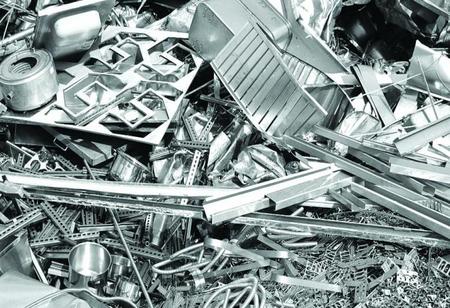On Wednesday, Tata Steel’s recycling business in India is to propose domestically produced shredded material to the Indian market.
Yogesh Bedi, chief of Tata Steel Recycling Business, said that the firm was in the final stages of commissioning a shredder, which would let the company offer domestically produced shredded scrap from April onwards.
The first capacity of the shredder is 350,000 tonnes per year, with plans to enlarge volumes in the upcoming year.
Since 2020 Tata Steel Recycling Business has been offering 150,000 tonnes each year of baled ferrous scrap under the Tata FerroBaled name, made using CRC trimmings.
Shredded ferrous scrap, made from antiquated and end-of-life vehicle (ELV) scrap, will be offered to the market under the Tata FerroShred brand name.
Bedi said that while there has been a boost in steel production in the country, there has also been a move toward using domestic scrap, citing the very volatile import markets that presently have long lead times, currency fluctuations and
are of vague quality. “There is a shift toward the domestic scrap industry due to significantly shorter lead times, lower inventory carrying costs and insulation from currency fluctuations,” he said.
The Indian government has also launched a variety of policies that will boost the domestic scrap industry, of which Bedi said are likely to include invitations to endow in infrastructure, vehicle dismantling and steel scrap processing.
One of the policies is the long-awaited ELV scrappage policy, which will support the shift to newer, more environmentally friendly vehicles, while removing older vehicles from the roads.
Bedi added that the vehicle scrappage scheme would make about around four million tonnes per year of ferrous scrap, rising to 10 million tpy by 2025, which would be coherent with the demand for scrap from the steady growth of India's secondary steel industry.
At this time, around 5-6 million tonnes of the country’s annual demand for ferrous scrap of 25-30 million tonnes is imported.
“Global studies suggest that steel scrap availability follows the development cycle of any country with a lag of 15-20 years. India’s growth [began to speed up in the] early 2000s; this would mean that 2020-2025 will be a point of inflexion for the Indian scrap industry,” Bedi stated.
“The timely policy interventions by the government is a definitive step... to boost the domestic scrap industry and reduce India’s dependence on imports,” he added.
India’s National Steel Policy targets to cut the country’s dependence on imports via the domestic production of more steel, with the aim of raising its steelmaking capacity to 300 million tonnes per year by 2030.
The country produced 99.57 million tonnes of crude steel in 2020, down by 10.6% from 111.35 million tonnes in 2019, as per Worldsteel data.
